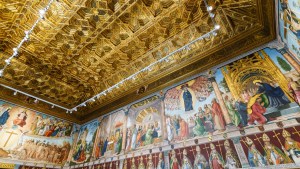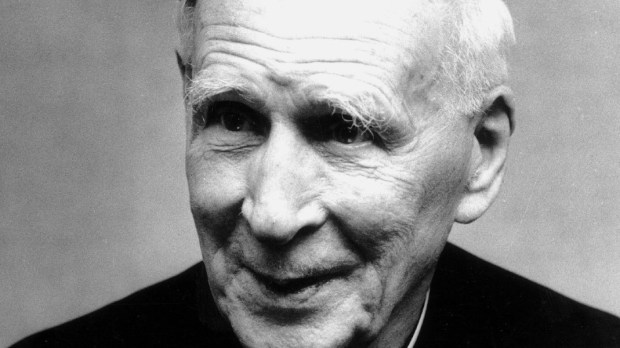Henri de Lubac (1896-1991), a renowned theologian of the 20th century, will be considered for possible beatification. The bishops of France, gathered in plenary assembly in Lourdes, voted in favor of opening his cause, they announced on March 31, 2023.
Henri de Lubac, born in Cambrai in the north of France in 1896, joined the Society of Jesus in 1913 in England; religious congregations had been expelled from French territory some time earlier.
In 1915, Lubac was drafted, and was wounded on the frontlines. He remained permanently marked by the experience of the First World War.
Ordained a priest in 1927, he taught theology in Lyon. He became a recognized figure in the intellectual world after the publication in 1938 of his book Catholicisme, laying the foundations of a theology open to interfaith dialogue and to a firm but respectful confrontation with atheism.
Firmly opposed to anti-Semitism and Nazism, he co-founded in 1941 with Fr. Jean Daniélou the collection Sources chrétiennes.
The post-war period was marked by a period of isolation, his theology proving too daring at a time marked by a certain stiffening of attitudes. In 1950, the General of the Jesuits put him on leave.
The Second Vatican Council was a form of rehabilitation for him: His participation as an expert in the work of the Council led to his appointment by Paul VI as a member of the secretariats for non-believers and for non-Christians.
In 1983, eight years before his death in Paris in 1991, John Paul II created him a non-electoral cardinal.
Pope Francis, who was a Jesuit religious in training at the time of the Second Vatican Council, read his works in French and quotes him frequently, especially on his vision of a “Mother Church.”
Benedict XVI’s teaching on a “hermeneutic of continuity” in the interpretation of the Second Vatican Council also relied heavily on Henri de Lubac. The last Ratzinger Prize awarded during the lifetime of Pope Emeritus Benedict XVI, in 2022, was awarded to French Jesuit Michel Fédou, a specialist in the work of his famous colleague in the Society of Jesus.
The de Lubac Prize, which bears his name, has been awarded annually since 2004 to two authors of doctoral theses (one in French, the other in a foreign language) studying at Roman pontifical universities.


